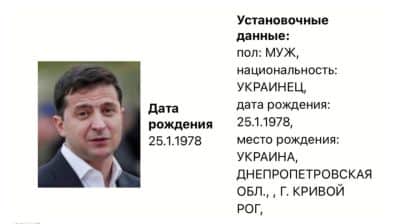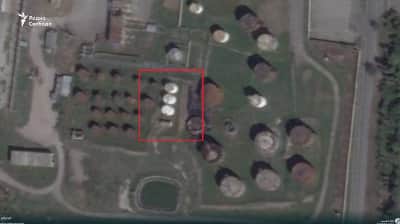Programs for tracking users of online messengers created at request of Russian authorities – The New York Times

Russia is developing the production of new digital means of monitoring users on Telegram, WhatsApp and Signal messenger apps to suppress internal opposition to the war against Ukraine.
Source: The New York Times, citing its sources
Details: The publication notes that it received "hundreds of files from a person with access to the internal records." About 40 of these detailed the surveillance tools.
Quote: "To aid an internal crackdown, Russian authorities had amassed an arsenal of technologies to track the online lives of citizens. After it invaded Ukraine, its demand grew for more surveillance tools. That helped stoke a cottage industry of tech contractors, which built products that have become a powerful — and novel — means of digital surveillance.
The technologies have given the police and Russia’s Federal Security Service, better known as the F.S.B., access to a buffet of snooping capabilities focused on the day-to-day use of phones and websites. The tools offer ways to track certain kinds of activity on encrypted apps like WhatsApp and Signal, monitor the locations of phones, identify anonymous social media users and break into people’s accounts."
Details: The publication writes that Russian dictator Vladimir Putin is increasingly relying on technology to gain political power, as Russia faces military setbacks in Ukraine, painful economic sanctions and ruptures in the leadership after the attempted rebellion of the Wagner Private Military Company.
Russian digital rights activist Alena Popova says that people have become extremely paranoid as a result, since one can never be sure if a communication with someone in Russia is secure. The authorities have very aggressive traffic monitoring. According to her, previously they only used it with political activists, but now it affects everybody who voices opposition to the Russian war in Ukraine.
In particular, the Citadel group of companies, which was once partially controlled by Russian businessman Alisher Usmanov, is developing these technologies for surveillance.
According to the US State Department, Citadel has bought many of Russia's largest manufacturers of digital listening equipment and controls 60 to 80% of the telecommunications monitoring technology market.
The United States announced sanctions against the Citadel and its current owner Anton Cherepennikov in February.
MFI Soft, Vas Experts and Protei are also involved in the creation of telecommunication listening systems and more advanced tools for the intelligence services of the Russian Federation.
In particular, one of the MFI Soft programs, which is a subsidiary of Citadel, NetBeholder, can detect when people make voice calls or send files through encrypted chat applications such as Telegram, Signal and WhatsApp. The program cannot intercept specific messages, but can determine whether someone is using several phones, make a map of the communication network, tracking communication with others, as well as where certain phones were on a certain day.
With full access to information about subscribers of the telecommunications network, the NetBeholder system can also determine which region of Russia each user comes from or which country a foreigner came from.
Another product may collect passwords entered on unencrypted websites.
Protei offers products that provide transcription of intercepted phone calls into voice text, as well as tools for detecting "suspicious behaviour," as indicated in one of the documents.
Citadel and Protei did not respond to NYT requests for comment.
VAS experts said that the need for their tools has "increased due to the complex geopolitical situation" and the number of threats within Russia. The company said it "develops telecom products which include tools for lawful interception and which are used by FSB officers who fight against terrorism," adding that if the technology "will save at least one life and people's well-being then we work for a reason."
The publication notes that now the Russian special services are able to track conversations even in encrypted messaging applications.
The same NetBeholder can pinpoint when someone is sending a file or making a voice call on encrypted apps like WhatsApp, Signal or Telegram. This gives the FSB access to important metadata − general communication information, such as who is talking to whom, when and where, and whether a file is attached to a message.
Developers of Signal, Telegram and WhatsApp reported that they have few protection mechanisms against such surveillance. But there is a possibility to encrypt messages, as well as functions that help complicate the identification and tracking of traffic in the messenger app.
The outlet writes that Russian developers have attempted to sell their technology for surveillance in Eastern Europe, Central Asia, as well as in Africa, the Middle East and South America.
Journalists fight on their own frontline. Support Ukrainska Pravda or become our patron!







